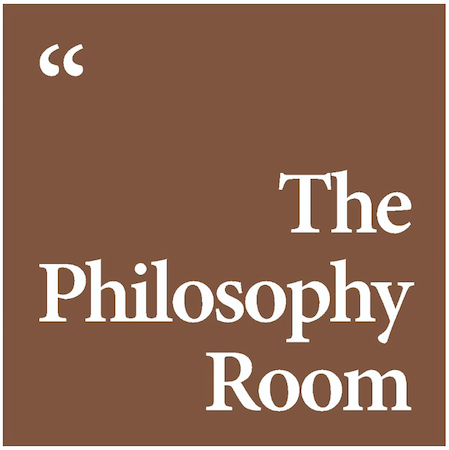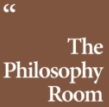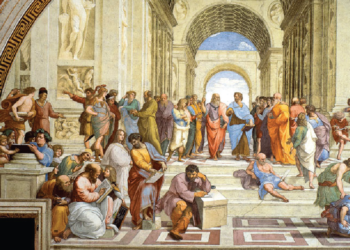Works of Love by Kierkegaard
1) About the Author:
Søren Kierkegaard, a prominent Danish philosopher and theologian, was born on May 5, 1813, in Copenhagen. Considered one of the founders of existentialism, Kierkegaard’s works delve into various aspects of human existence, faith, and the nature of reality. He led a relatively secluded life and published his writings under various pseudonyms, each representing a different perspective or philosophical stance.
Kierkegaard’s philosophical inquiries focused on the subjective experience of the individual, emphasising the importance of personal responsibility, authenticity, and the search for meaning in a world of uncertainty. His works often challenge conventional wisdom and established religious doctrines, inviting readers to engage in deep introspection and wrestle with fundamental questions of human existence.
Kierkegaard’s writing style is marked by its depth, poetic language, and intricate exploration of complex philosophical concepts. Although his works gained more recognition after his death, Kierkegaard’s ideas have had a profound influence on subsequent generations of philosophers, theologians, and writers. Today, he is widely regarded as one of the most significant and original thinkers of the 19th century.
In his personal life, Kierkegaard experienced numerous struggles, including a tumultuous relationship with his father, conflicts in his romantic relationships, and a constant battle with depression. These personal experiences undoubtedly shaped his philosophical perspective and imbued his works with a sense of existential urgency and authenticity.
Despite his relatively short life, Søren Kierkegaard’s intellectual legacy continues to resonate with readers around the world. His profound insights into the complexities of human existence, the nature of faith, and the inherent tension between reason and passion have made him a timeless figure in philosophical discourse. “Works of Love” is one of his seminal works, exploring the themes of love, Christian ethics, and the nature of relationships, offering readers profound reflections on the nature of love in its various forms.
2) Main Themes:
Love as a Christian Virtue:
“Works of Love” places a central focus on the theme of love as a Christian virtue. Kierkegaard explores the profound significance of love in relation to the individual’s relationship with God, oneself, and others. He emphasises that love is not merely an emotion or sentiment but an active commitment and duty that requires selflessness, sacrifice, and compassion. Kierkegaard’s work challenges readers to embody love in their actions, demonstrating its transformative power in personal and communal life.
Self-Examination and Authenticity:
Another crucial theme in “Works of Love” is the call for self-examination and authenticity. Kierkegaard urges individuals to engage in introspection, honestly assessing their motives and intentions in their relationships and interactions. He argues that true love requires a genuine understanding of oneself and a willingness to confront one’s own limitations and shortcomings. By embracing authenticity, individuals can cultivate more meaningful connections with others and deepen their capacity for love.
Love and Relationship with God:
Kierkegaard explores the profound connection between love and one’s relationship with God. He emphasises that love for God is the highest form of love and should serve as the foundation for all other relationships. Through a deepening love for God, individuals can find purpose, guidance, and the ability to love others unconditionally. Kierkegaard encourages readers to cultivate a personal relationship with God through prayer, faith, and a sincere desire to align their will with God’s will.
Love of Neighbors and Strangers:
The theme of love extends beyond personal relationships to encompass love for one’s neighbours and even strangers. Kierkegaard challenges readers to extend their love beyond their immediate circle and embrace a broader sense of community. He emphasises the importance of treating others with kindness, compassion, and empathy, regardless of social status, differences, or personal preferences. By loving and caring for others, individuals contribute to the well-being of society and exemplify the Christian virtue of love.
The Paradox of Love:
Kierkegaard delves into the paradoxical nature of love in “Works of Love.” He explores how love involves both vulnerability and strength, self-giving and self-preservation, and the tension between the individual’s needs and the needs of others. Kierkegaard invites readers to navigate these paradoxes and embrace the challenges and uncertainties inherent in love. Through the exploration of these tensions, individuals can grow in their capacity to love authentically and fully.
Love and Forgiveness:
Forgiveness is a recurring theme in “Works of Love.” Kierkegaard highlights the transformative power of forgiveness in healing broken relationships and fostering reconciliation. He emphasises that love requires the willingness to forgive others, even in the face of betrayal or injustice. Kierkegaard acknowledges the difficulty of forgiveness but argues that it is essential for personal growth, restoration of relationships, and the manifestation of God’s love in the world.
Love and Ethical Responsibility:
Kierkegaard explores the ethical dimensions of love in “Works of Love.” He argues that love should not be limited to personal feelings or affection but should manifest in ethical action. Love compels individuals to act responsibly, to seek justice, and to work towards the well-being of others. Kierkegaard emphasises the importance of living a life of love that aligns with one’s Christian beliefs, embracing a moral responsibility to promote love, justice, and compassion in the world.
3) Christian Love according to Kierkegaard:
In “Works of Love,” Søren Kierkegaard delves deeply into the concept of Christian love, presenting a profound understanding of love rooted in Christian teachings. According to Kierkegaard, Christian love is far more than a mere emotion or sentiment; it is a transformative virtue that reflects God’s unconditional love for humanity.
Kierkegaard emphasises that Christian love goes beyond human capabilities and requires divine grace. It is a selfless love that seeks the well-being and ultimate good of others without expecting anything in return. Christian love is not based on personal preferences, social status, or the merit of the recipient, but rather on the recognition of the inherent worth and dignity of every human being as created in the image of God.
For Kierkegaard, Christian love is grounded in a personal relationship with God. It is through one’s love for God that the capacity to love others is nourished and sustained. Love for God serves as the foundation for all other forms of love and is expressed through acts of compassion, kindness, forgiveness, and self-sacrifice.
Kierkegaard highlights the importance of genuine self-examination and authenticity in Christian love. He argues that true love requires individuals to be honest with themselves and confront their own weaknesses, limitations, and selfish tendencies. It is through this self-awareness and humility that individuals can cultivate a sincere love for others, recognizing that they too are flawed and in need of grace.
Christian love, as Kierkegaard presents it, extends beyond personal relationships to embrace the wider community. It involves caring for one’s neighbours, including strangers and even enemies. Kierkegaard challenges readers to break down social barriers and demonstrate love to all, regardless of differences or societal divisions.
Crucial to Christian love, according to Kierkegaard, is the willingness to forgive. He argues that forgiveness is an essential aspect of love, as it allows for the healing of broken relationships and the restoration of unity. Christian love acknowledges human frailty and the potential for mistakes, yet seeks reconciliation and restoration through the power of forgiveness.
Ultimately, for Kierkegaard, Christian love is a call to ethical responsibility. It compels individuals to actively live out their faith through acts of love and justice. Love becomes the guiding principle for moral action, motivating believers to work towards a more compassionate and just society.
4) Erotic Love according to Kierkegaard:
In his philosophical exploration, Søren Kierkegaard also delves into the concept of erotic love, often referred to as romantic or passionate love. Kierkegaard’s perspective on erotic love is complex and nuanced, shaped by his understanding of human nature, desire, and the dynamics of relationships.
According to Kierkegaard, erotic love is characterised by a passionate longing for union with another person. It is a powerful force that can stir intense emotions and desires within individuals. Erotic love is associated with the romantic and sexual aspects of human relationships, encompassing attraction, infatuation, and the pursuit of physical intimacy.
However, Kierkegaard recognizes the inherent tensions and complexities present within erotic love. He highlights that erotic love can be accompanied by both joy and suffering, ecstasy and despair. The intensity of emotions and desires experienced in erotic love can often lead to feelings of vulnerability, jealousy, and fear of rejection.
Kierkegaard acknowledges the temporal nature of erotic love, emphasising that it is often transient and subject to change. He notes that the initial passion and excitement may diminish over time, revealing the need for a deeper connection and commitment beyond mere physical attraction. According to Kierkegaard, the longevity and true fulfilment of erotic love depend on the development of a more profound and enduring form of love.
For Kierkegaard, the challenge lies in the transition from erotic love to a higher form of love he refers to as ethical or Christian love. While acknowledging the significance and beauty of erotic love, he argues that it should not be an end in itself but rather a means of growth and self-discovery. Erotic love can serve as a stepping stone towards a love that encompasses the whole person, extending beyond the physical and emotional realm.
Kierkegaard suggests that true fulfilment in love comes when erotic love is integrated with ethical considerations and Christian principles. He emphasises the importance of love grounded in commitment, mutual respect, and the recognition of the other person’s inherent worth. Erotic love, in this context, becomes a harmonious blend of passion, companionship, and shared values.
In Kierkegaard’s philosophy, the ideal form of love transcends the transient nature of erotic love and embraces a deeper understanding of the self, the other, and the ethical responsibilities inherent in relationships. It involves a willingness to sacrifice personal desires for the well-being and happiness of the loved one, creating a foundation for lasting and meaningful connection.
5) Reception of the Book:
Upon its initial publication and in the years that followed, “Works of Love” by Søren Kierkegaard garnered mixed reactions and varied interpretations from readers and scholars. The reception of the book has evolved over time, with increasing recognition of its significance and enduring impact on philosophical and theological discourse.
Initially, “Works of Love” received relatively little attention, overshadowed by some of Kierkegaard’s other notable works. The book’s profound exploration of love, ethics, and Christian teachings did not immediately capture widespread attention. However, as Kierkegaard’s philosophical ideas gained more recognition, his works, including “Works of Love,” began to attract greater interest and critical acclaim.
Over the years, scholars and readers have come to appreciate the depth and complexity of Kierkegaard’s insights on love in “Works of Love.” The book’s emphasis on the transformative power of love, the ethical dimensions of relationships, and the call to authentic Christian living resonated with individuals grappling with questions of meaning, purpose, and human existence.
Kierkegaard’s exploration of love as a Christian virtue, as well as his examination of the paradoxes and challenges inherent in love, have been subjects of extensive analysis and discussion. Scholars have engaged with the book’s themes, delving into its rich philosophical and theological content, and its relevance to contemporary debates on love, ethics, and spirituality.
“Works of Love” has also found resonance among theologians, Christian thinkers, and practitioners. Its exploration of love as a central aspect of Christian faith and the ethical responsibilities associated with it has provided a source of reflection and inspiration. The book’s emphasis on the relationship between love for God and love for others has contributed to discussions on Christian ethics and the practice of love within religious communities.
Furthermore, Kierkegaard’s poetic and introspective writing style, characteristic of “Works of Love,” has been praised for its literary quality. His ability to convey complex philosophical ideas through evocative language and vivid metaphors has captivated readers and added to the book’s enduring appeal.
In contemporary times, “Works of Love” continues to be studied, discussed, and referenced by scholars, theologians, and individuals interested in philosophy and ethics. Its exploration of love, authenticity, and the Christian way of life remains relevant and thought-provoking in an age marked by changing social dynamics and the ongoing search for meaningful connections.












